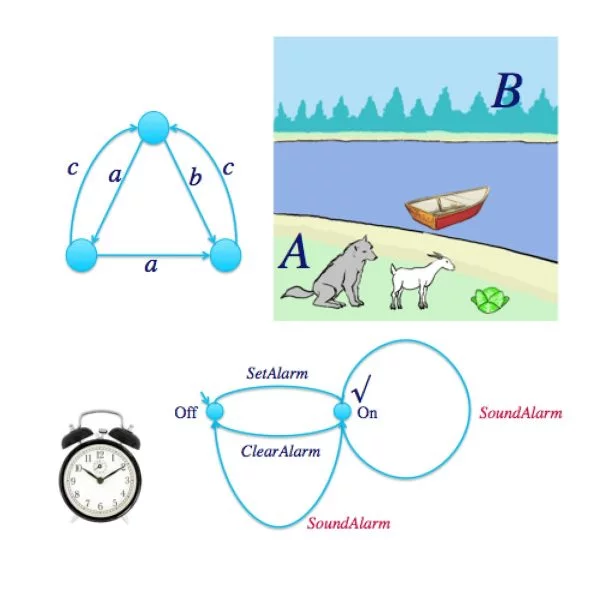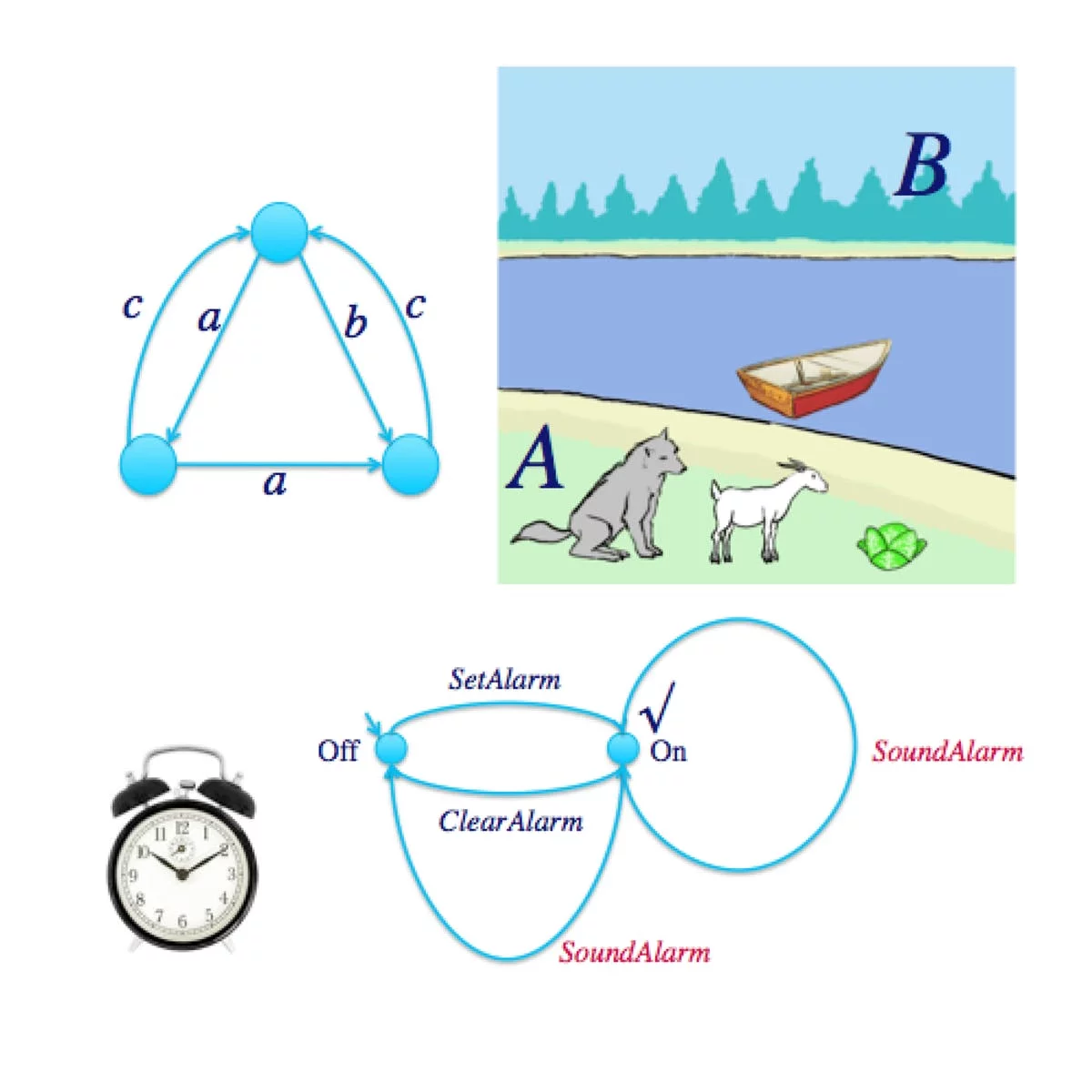
System Validation: Automata and behavioural equivalences
FREE
Have you ever experienced software systems failing? Websites crash, calendar not synchronising, or even a power blackout. Of course you have! But did you know that many of these errors are the result of communication errors either within a system or between systems? Depending on the system, the impact of software failures can be huge, even resulting in massive economic damage or loss of lives. Software, and in particular the communication between software–intensive systems, is very complex and very difficult to get right. However, we need dependability in the systems we use, directly or indirectly, to support us in our everyday lives. System Validation helps you to design embedded system behaviour that is structurally sound. It also enforces you to make the behaviour simple and insightful; systems that are designed for sound behaviour are also much easier to maintain and adapt. System Validation is the field that studies the fundamentals of system communication and information processing. The techniques put forward in system validaton allow to prove the absence of errors. This first course ‘Automata and behavioural equivalences’, builds the foundation of the subsequent courses, showing you how to look at system behaviour as state machines. It discusses behavioural equivalences and illustrate these …
Instructor Details
Courses : 4
Specification: System Validation: Automata and behavioural equivalences
|
25 reviews for System Validation: Automata and behavioural equivalences
Add a review Cancel reply
This site uses Akismet to reduce spam. Learn how your comment data is processed.

FREE







acepasag –
I’ve learn more thing’s in this course…, thank you Coursera 🙂 🙂 🙂
Marcelo N T –
Very interesting and a good fine tuning experience to my brain relating to systems! Awesome!
Paul J R T P –
very helpful
Eric L –
Useful introduction.
Carlos D N D –
Although superficial, it is a very good MOOC for introducing LTS testing.
Dmitry F –
Course is mostly theoretical. So far it’s difficult to say anything about its practical implications and usefulness. It’s my first course on Coursera, so I can’t compare. But I think sometimes it lacks a bit clarity, especially considering lecturer’s English and bad quality of subtitles which sometimes do not match real lecturer’s words. Anyway it was interesting and now I’m really intrigued about how I can apply this new knowledge to real everyday development tasks. Most probably I will try following courses in the specialization. Thanks a lot to authors!
Mykola D –
I really like the subject of the course. The presentation was really good. However, some of the concepts were not so easy to understand. The course does not provide any reading, so I had to watch the lectures again if I forget some of the details. Eventually I’ve started taking detailed notes and added screenshots to my notebook. I wish I could have more exercises just for practice that would not be graded. That would provide a safe env. to learn and practice before taking final tests. Some of the answers to exercises were very helpful to learn the concepts better. So, more such practical exercises would be helpful.
Nafees M –
thx a lot prof.
Emmanuel S d L C –
Thanks! Very well done for an introductory course.
Roger.Qea –
It will be better if these materials could be summarized into a table at the end of the course.
Marwan A –
I didn’t understand a thing from the course! It’s like the professor is reading from a book! This is not education, this is an audible book recorded using the worst mic ever!
Aaron B –
This course is incredibly information dense in lectures, and very light on examples and why and how to apply what you’ve learned: First: there are no problem sets and very few examples, making it hard to explore the topics discussed in the lecture. I’m not the best listener, so maybe everything is clear and I’m missing it, but doing is the way I learn best. Also, I can find almost no reference to this topic anywhere else which is a little unusual Second: the lectures don’t motivate the topic in any practical way. Even the ‘alternating bit’ protocol lecture was just discussing the solution to the problem itself. Having watched all the lectures I still don’t know what I would use any of this topic for. Also couldn’t get the ‘alternating bit protocol’ software to work, just crashed on my osx laptop. I would love to do a class on system validation, Coq, TLA+, etc. are all interesting topics to me, I just want a class that helps me do those things.
Minjun K –
Content is very unique and nice, but delivery is quite poor. The instructor is murmuring almost every word, and pronunciation is unclear, so that I had to just read the subtitle instead of actually listening to the lecture. It was just too painful for me that I am now hesitating whether I should continue to the next part or not…
Emmanuel D –
A very good introduction for model checking. I had some knownledge and it was very good refresh.
Carlo B –
I liked the course and the topic, I suggest to improve adding more practical automata modelling in mCRL2. The current approach is a little bit discouraging because requires a lot of manual effort especially because there are multiple choices per exercise and you get zero % if you miss one.
Dongdong A –
Very helpful for me to learn about the automata
Harsh K D –
Course gives a very abstract and basic idea.It fails to explain the relations with practical examples.
Leticia G –
Very helpful! Thank you very much!
Serjey G I –
A little coarse course.
Volkov O –
Very little explanations on quite complex matter (especially on branching bisimulation). References to the book are helpful except that sometimes it has different definitions. For example the books definition of the language is the set of non extendable traces while the lector treats it as the set of terminated traces. The description of alternating bit protocol is absolutely beyond my understanding. Though its rather simple and well described in wikipedia.
delfieu d –
I have appreciated the pedagogic presentation. Some concepts, quite well introduced by examples, would have deserved to have their formal definitions presented.
Ruslaan B A G –
Useful knowledge
POTTI R G –
Very Good Subject
Brandon J T A –
Very nice!
Sander W –
Very nice course to learn about behavioural equivalance. Sometimes it was kinda hard to keep track of the different types of bisimulation. A 5 min recap/summarization video about weak/strong/branching/rooted/divergence bisimulation would have made it perfect for me.